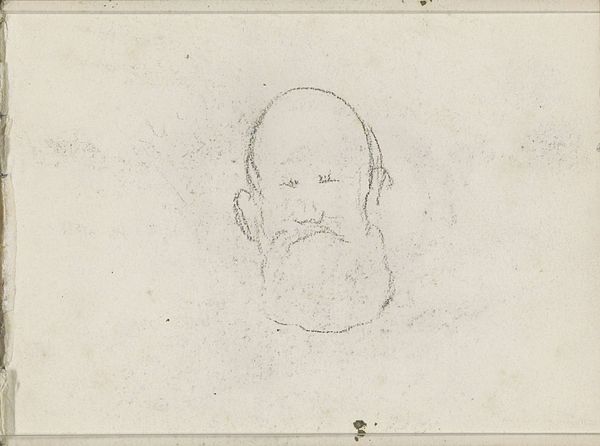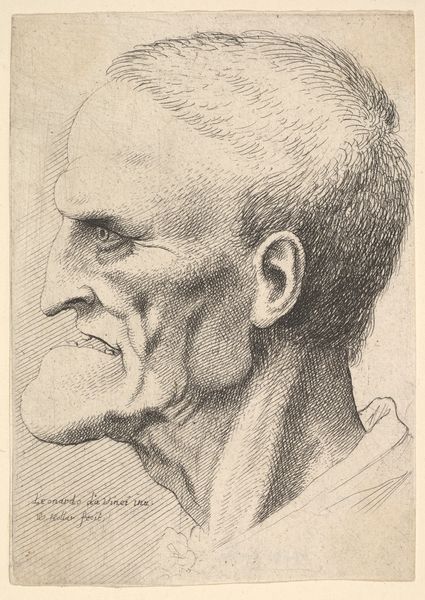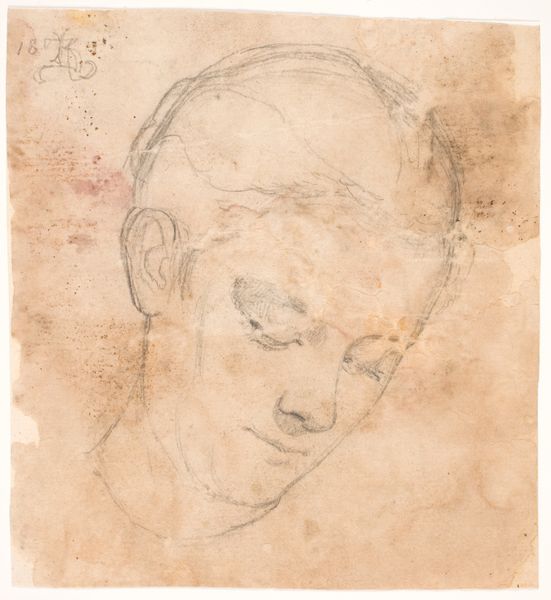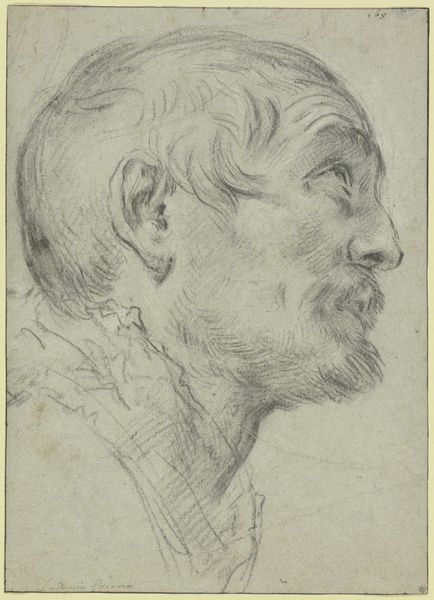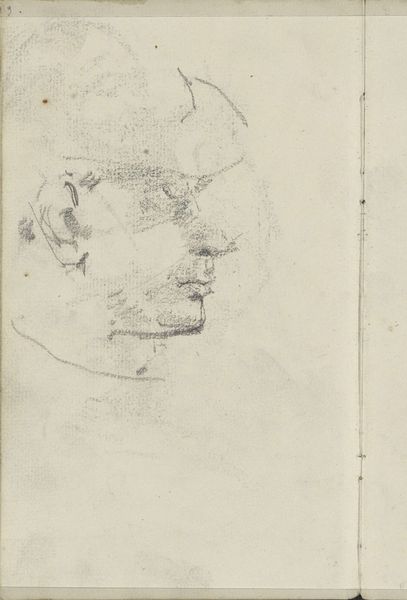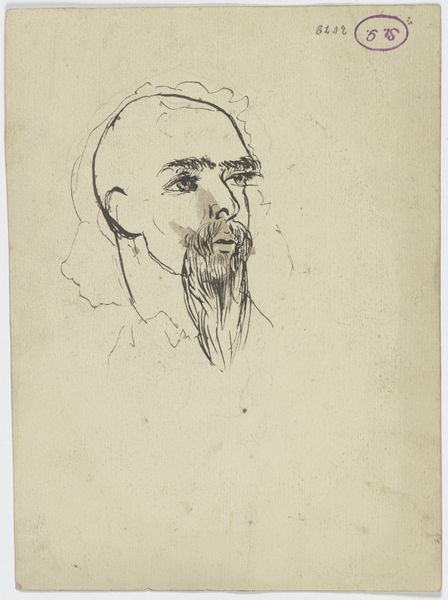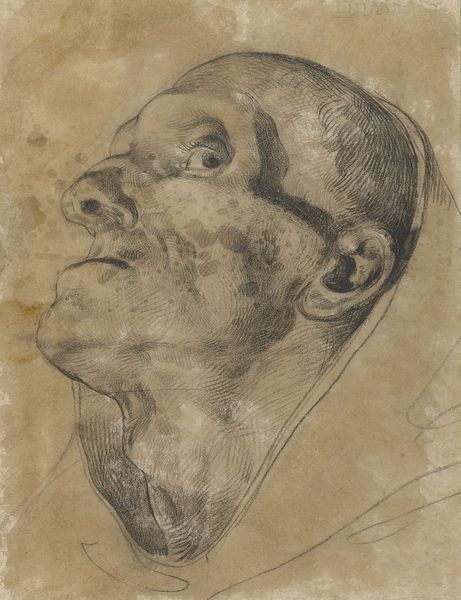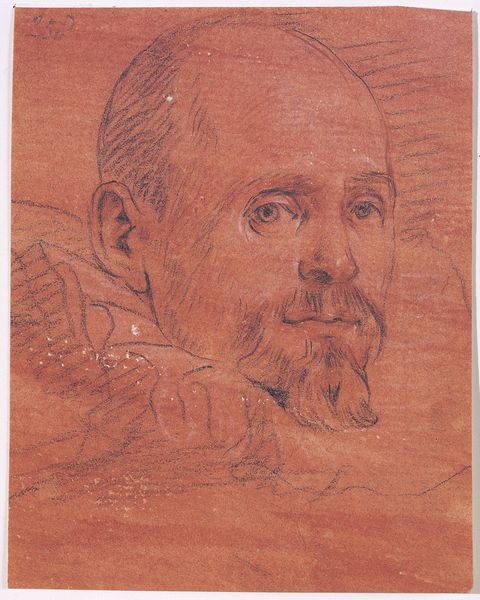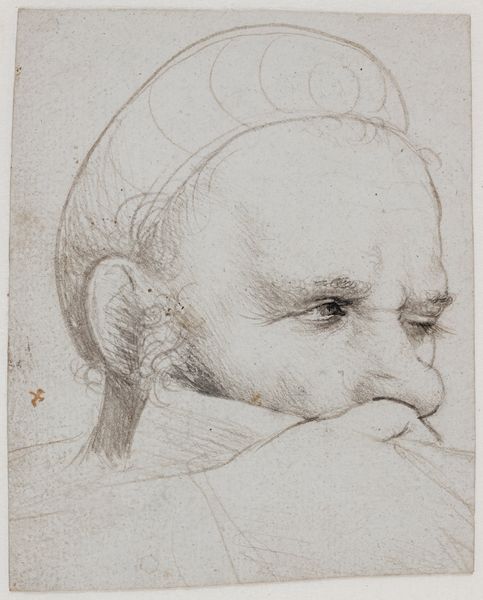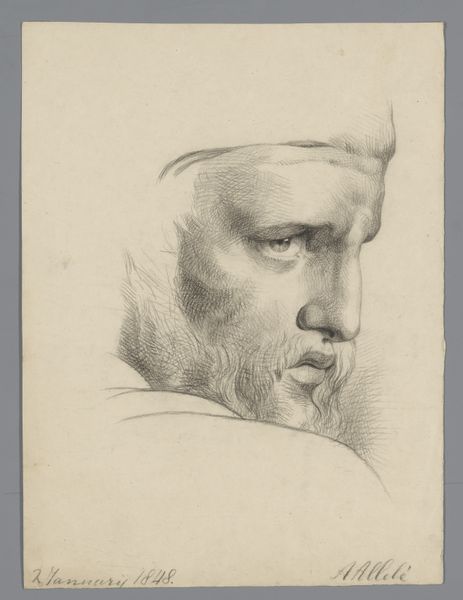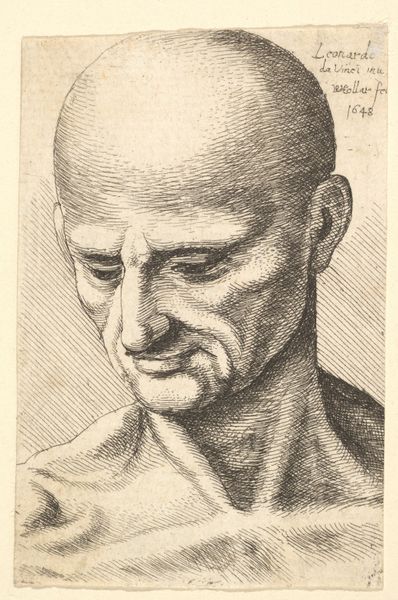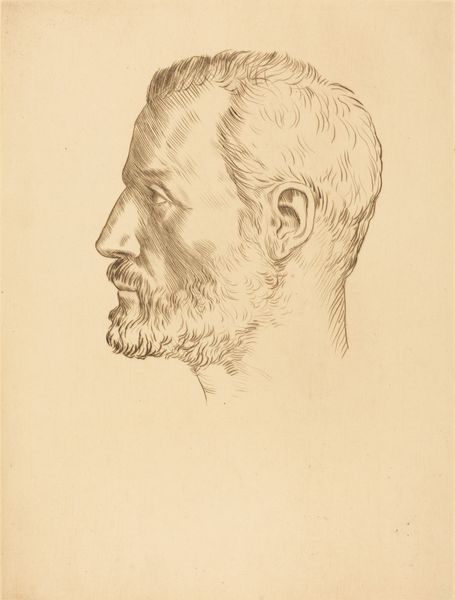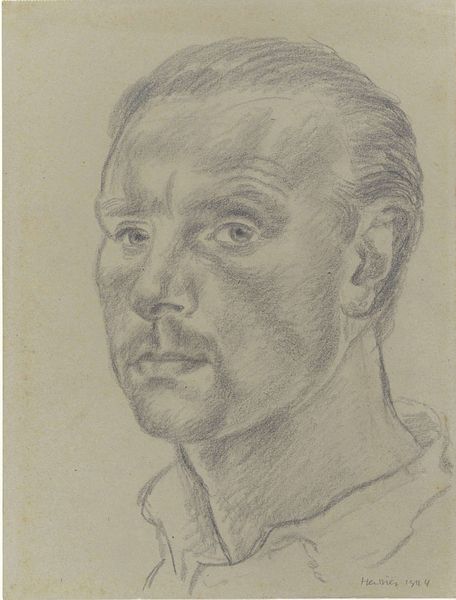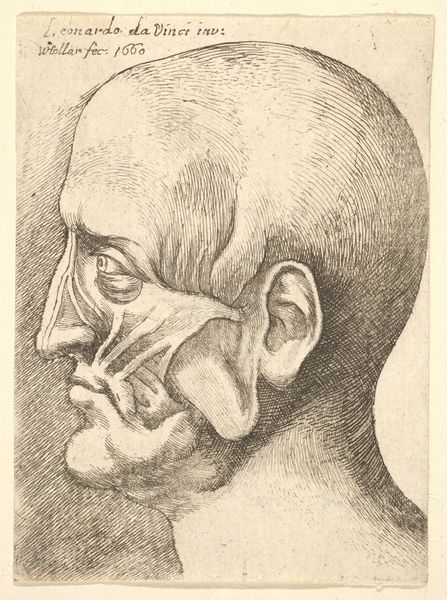
drawing, pencil
#
portrait
#
pencil drawn
#
drawing
#
charcoal drawing
#
pencil drawing
#
pencil
#
portrait drawing
Copyright: Public Domain: Artvee
Editor: We’re looking at "Portret van Jac. Jongert, van opzij," a 1917 pencil drawing by Richard Nicolaüs Roland Holst. It's a striking profile, and the subject has such a determined look about him. How do you interpret this work in the context of its time? Curator: It’s interesting to consider the social dynamics at play here. Roland Holst was deeply involved in socialist circles. This portrait, created during World War I, portrays Jongert, likely a figure from that same political sphere, with a strong, almost stoic expression. Consider the role of portraiture at that time; it was often used to convey not just likeness, but also character, even political affiliation. How do you see the artistic style contributing to this message? Editor: The use of pencil feels very direct, almost documentary. It's not overly flattering, but it does seem to capture a certain authenticity. The lines are so visible; it shows the construction of the face itself. Curator: Exactly! The visible construction lines point to a deliberate choice. Was the artist interested in showing a more modern, perhaps less idealized vision of leadership? Portraits in socialist circles often emphasized the working man, the intellectual, the activist – roles over traditional status. Think about the rise of social realism a bit later; this may be an earlier manifestation of that impulse. Does knowing that influence how you see the artwork? Editor: Absolutely. It shifts my perspective. I initially saw it as a straightforward portrait, but now it feels more like a statement, perhaps subtly challenging traditional portraiture and power structures. Curator: Precisely. It's a powerful reminder of how art can reflect and participate in the political and social currents of its time. Roland Holst gives Jongert this remarkable, solid, palpable humanity with so few lines. Editor: That really deepens my appreciation for the work. Thanks for illuminating the social context.
Comments
No comments
Be the first to comment and join the conversation on the ultimate creative platform.
